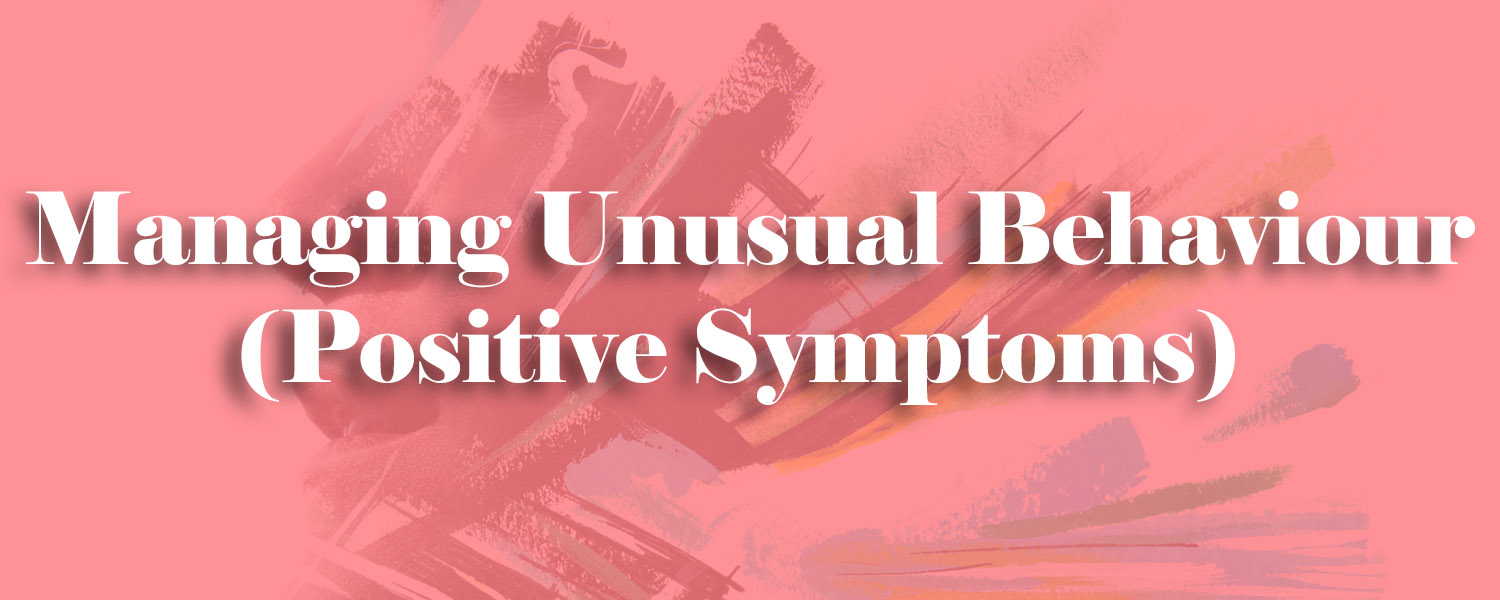
Delusions
Delusions are mistaken, implausible or in some cases, clearly bizarre or outlandish beliefs that develop in psychosis.
Delusions range from exaggerated or ‘over valued’ beliefs that are common amongst the general population to those which can seem bizarre or implausible.
Examples of exaggerated or overvalued beliefs:
- I have a special relationship with God.
- People are talking about me behind my back at work.
- I think that my husband might be having an affair.
Examples of bizarre or implausible beliefs:
- God communicates to me through the words to rap videos on MTV.
- People at work have tampered with the air conditioning over my desk so that it sprays me with a gas that makes me dizzy.
- My husband is an alien who has taken human form and is planning to murder me so that another alien can take my identity.

It’s important to recognise that delusions are usually an attempt to understand an event or experience that is unclear or confusing. Therefore they are not always without some basis in reality.
To the person experiencing them, delusions feel entirely reasonable and no different to any other belief. Like anyone else, they might resent, or fight back against, anyone who challenges or ridicules their ideas.
Watch Professor Jo Smith explain what a delusional belief is
Types of Delusions
A delusion is ‘paranoid‘ when it involves the fear of persecution by others.
‘Grandiose‘ delusions are beliefs in which the person thinks of themselves as unusually special, gifted or high-born. An example of a “grandiose delusion” might be the belief that you are the ‘real’ heir to the throne.
‘Nihilistic‘ delusions are common in severe depression. The person might believe that they are ‘bad’ or even evil. They might start to think that their insides are rotten or diseased, or even that they are already dead.

The content of delusional beliefs can be anything. However, there are some themes which seem to be particularly common, and particularly distressing. These include:
- The belief that someone else can control your thoughts, feelings, or behaviours
- The belief that you have done something very bad, which causes extreme feelings of guilt
- The belief that other people can read your mind, or can insert thoughts into your mind
- The belief that everyday comments are directed specifically at you, including messages from the TV or radio
How do delusions develop?
Delusions sometimes develop as an attempt to explain other experiences, such as voices, other hallucinations or thinking abnormalities.
Mostly, however, delusions develop because people ‘misinterpret‘ ordinary events in their environment or struggle to think of alternative explanations for situations or events. This tends to happen more when people are especially stressed. When we are stressed it’s normal to become more worried and suspicious and for normal reasoning to be replaced by instant decision making or ‘jumping to conclusions.’
Finally… Psychosis often results in an emotional state where beliefs ‘just feel right’, even though, intellectually, the person might question them. The person can’t help but live their life as though the belief were absolutely true, even though they can see that to others it appears unreasonable. This can make delusions tricky to deal with.


